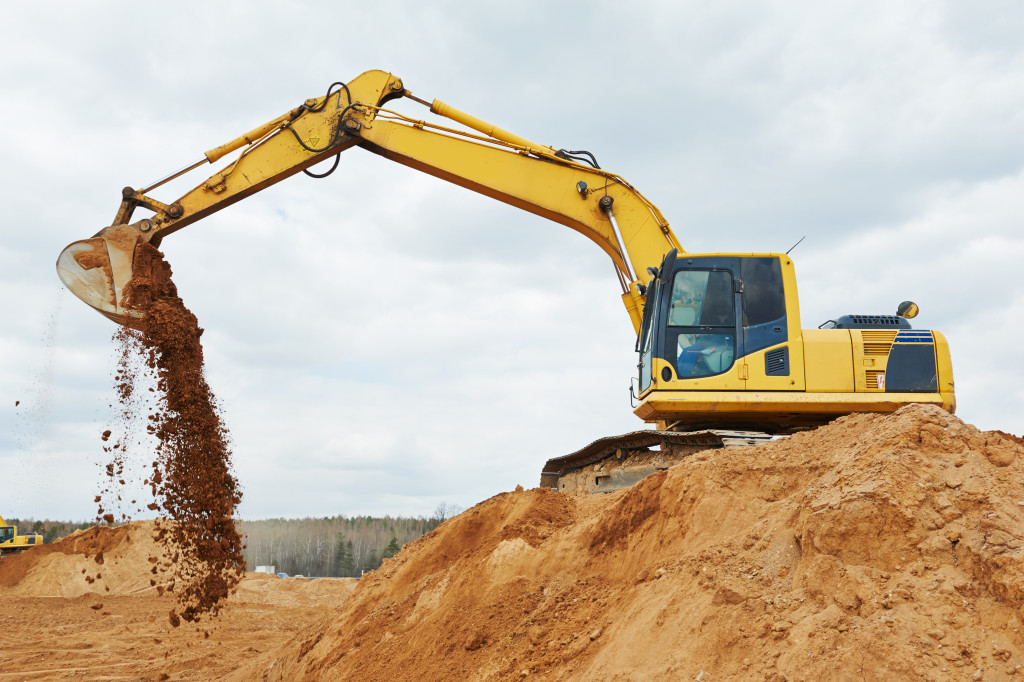- Starting a construction business requires careful planning and deep industry knowledge.
- A well-thought-out business plan is crucial for success, securing loans, and attracting investors.
- Continuous learning and certifications enhance your company’s credibility and competitiveness.
- Building a reliable team of skilled professionals is essential for long-term success.
- Investing in high-quality equipment, such as earthmoving , concrete, and safety gear, improves job efficiency and quality.
Starting a construction business is an ambitious endeavor that requires careful planning and deep industry knowledge. However, with determination and the right approach, you can build a profitable venture that contributes positively to the building and construction industry.
1. Develop a Solid Business Plan

A well-structured business plan is the blueprint for your construction company’s future operations and growth. It helps you identify your business goals, target audience, competition, and financial projections. This document is essential not only for guiding your business but also for securing loans and attracting investors.
In crafting your business plan, be specific and realistic about your objectives and how you intend to achieve them. Break down your goals into manageable steps, considering each phase’s resources and time required. This approach provides clarity and direction as you navigate the complexities of the construction industry.
2. Acquire Necessary Skills and Certification
Possessing the requisite skills and certifications is crucial for the credibility and success of your construction business. Engage in continuous learning to stay updated on industry trends, technologies, and best practices. This knowledge is vital for delivering quality services and staying competitive.
Invest in training programs and certifications for yourself and your team. These credentials enhance your company’s reputation and build trust among your clients. Being certified demonstrates your commitment to adhering to industry standards and delivering excellence in every project.
3. Build a Reliable Team
Having a team of skilled and dedicated professionals is fundamental to the success of your construction business. Your team should comprise individuals who are experienced in various construction roles and share your vision and values.
Recruitment should be conducted meticulously, ensuring each member possesses the necessary skills and attitude to contribute positively to the company’s objectives. A reliable team enhances productivity and fosters a healthy working environment, vital for long-term success.
4. Invest in Quality Equipment
The right equipment is indispensable in construction, affecting the quality and efficiency of your work. Investing in high-quality tools and machinery might seem costly initially. Still, it pays off in the long run by reducing downtime and maintenance expenses while improving job efficiency and quality.
Consider the specific needs of your projects and choose equipment that offers the best performance and durability. Don’t shy away from investing in technology that can streamline operations and enhance the precision and quality of your construction tasks.
Here are some equipment to invest in:
Earthmoving Equipment
Earthmoving equipment, such as excavators, loaders, and bulldozers, form the backbone of any construction project. These heavy-duty machines are used for digging, moving, and depositing large amounts of earth or debris. Investing in high-quality earthmoving equipment ensures faster completion of tasks and enhances the overall productivity and efficiency of your operations.
Concrete Equipment
Concrete equipment like mixers, batching plants, and concrete pumps are essential for any construction project. High-quality concrete equipment ensures consistency in the mixing, leading to superior strength and durability of the structures. Investing in such equipment translates to the longevity of your projects and greater satisfaction for your clients.
Material Handling Equipment
Material handling equipment such as cranes, conveyors, and forklifts are vital in transporting materials on the construction site. High-quality material handling equipment ensures safe and efficient transportation, reducing the risk of accidents and speeding up the construction process.
Safety Equipment

Last but not least, investing in quality safety equipment is a must. Helmets, safety shoes, gloves, harnesses, and other protective gear ensure the safety of your workforce. Remember, a safe work site complies with regulations and promotes a productive and positive work environment.
5. Obtain Appropriate Insurance
In the construction industry, various risks and uncertainties can impact your business, ranging from accidents on-site to delays due to weather conditions. To safeguard your company, workers, and clients, it is crucial to have construction insurance. This coverage protects you from significant financial losses from unforeseen events during construction projects.
The right construction insurance policy provides a safety net, allowing you to undertake projects confidently. Before selecting a policy, understand the specific risks associated with your business and choose coverage that adequately addresses these concerns. Investing in comprehensive insurance is a legal requirement and a wise business decision that provides financial stability and peace of mind.
Final Words
Launching a construction business is both challenging and rewarding. With a robust business plan, relevant skills and certifications, a dependable team, quality equipment, and the right insurance coverage, you are well on your way to establishing a construction company that stands the test of time and market fluctuations. Dedication, continuous learning, and meticulous planning are the cornerstones of a successful venture in this dynamic and competitive industry.

